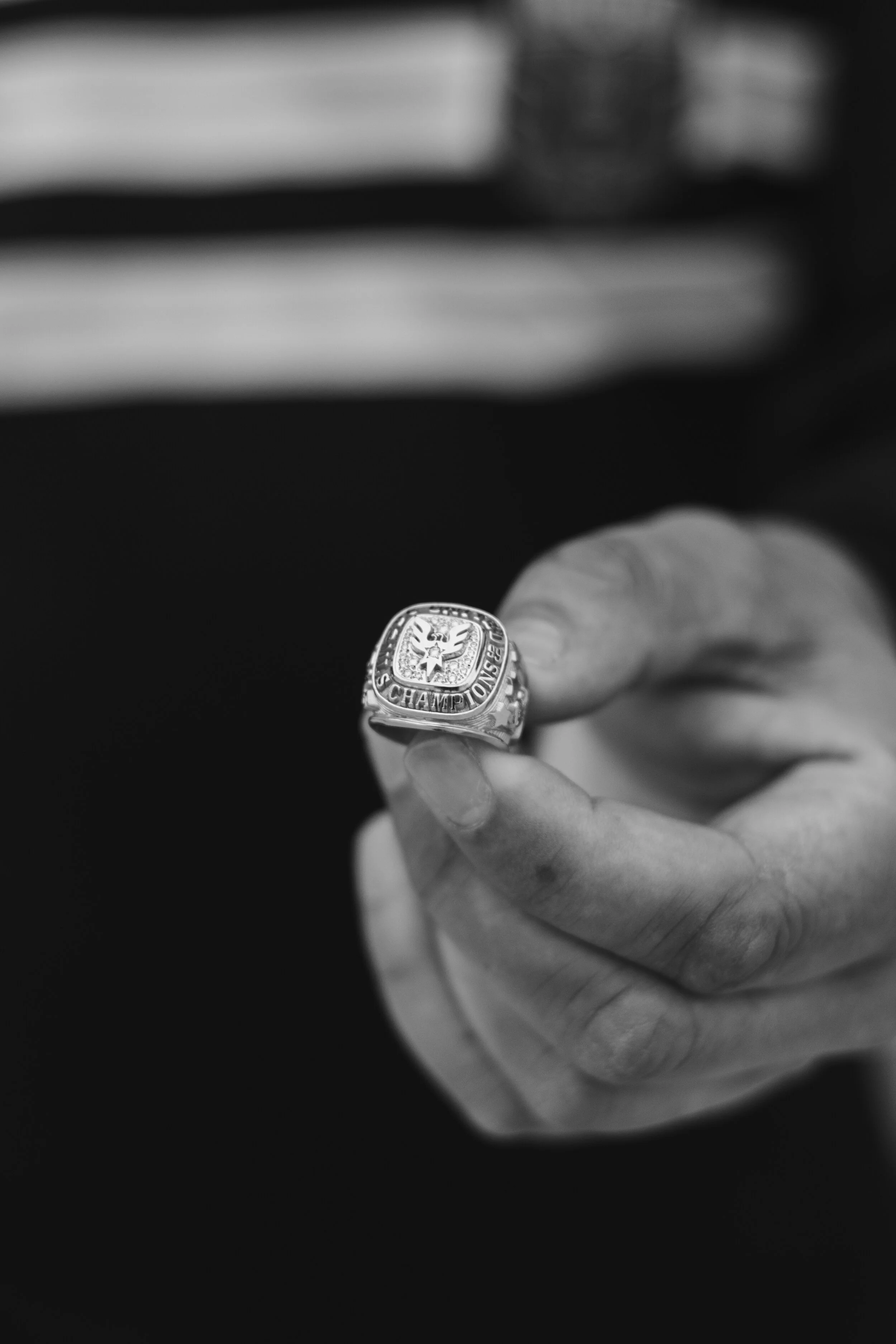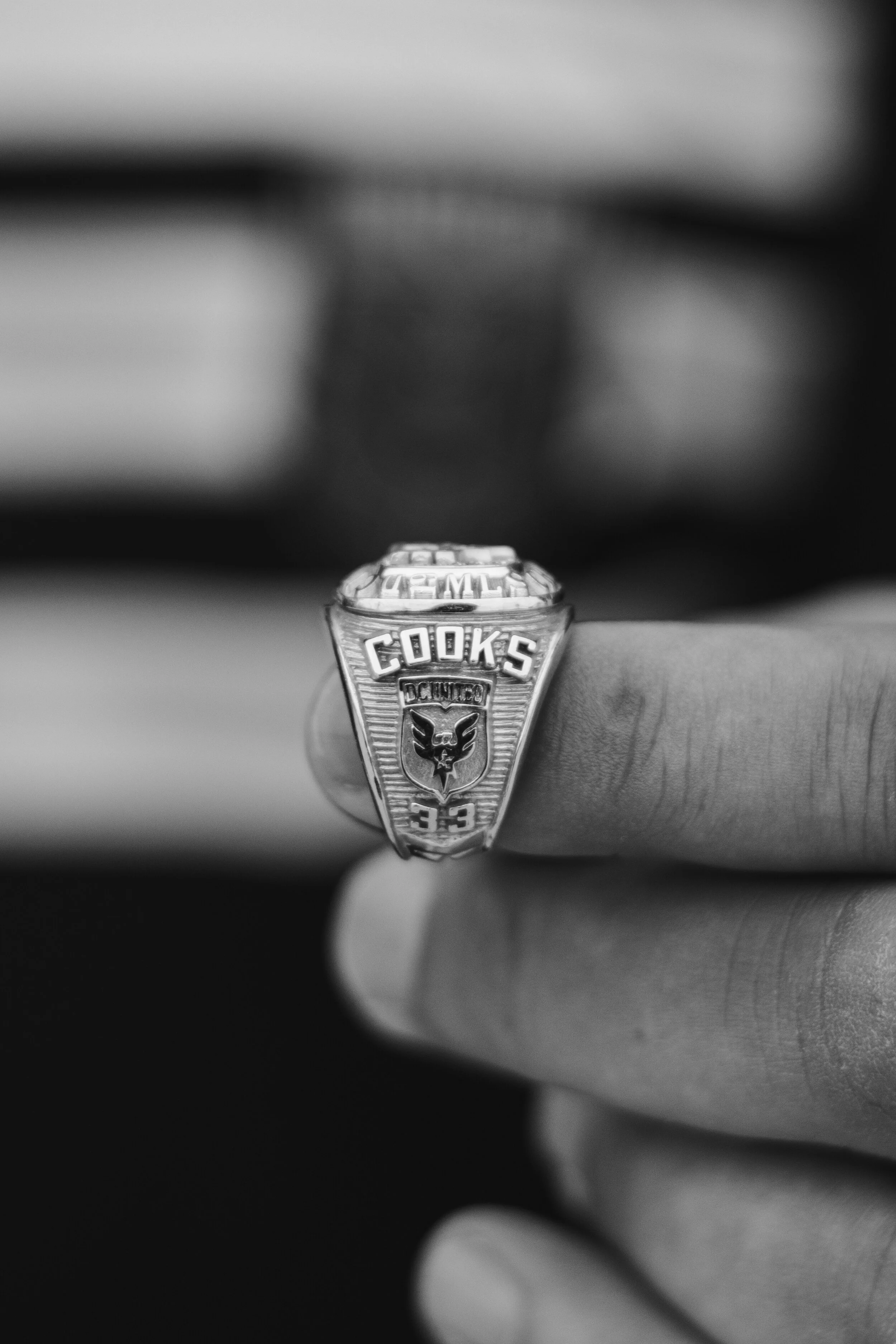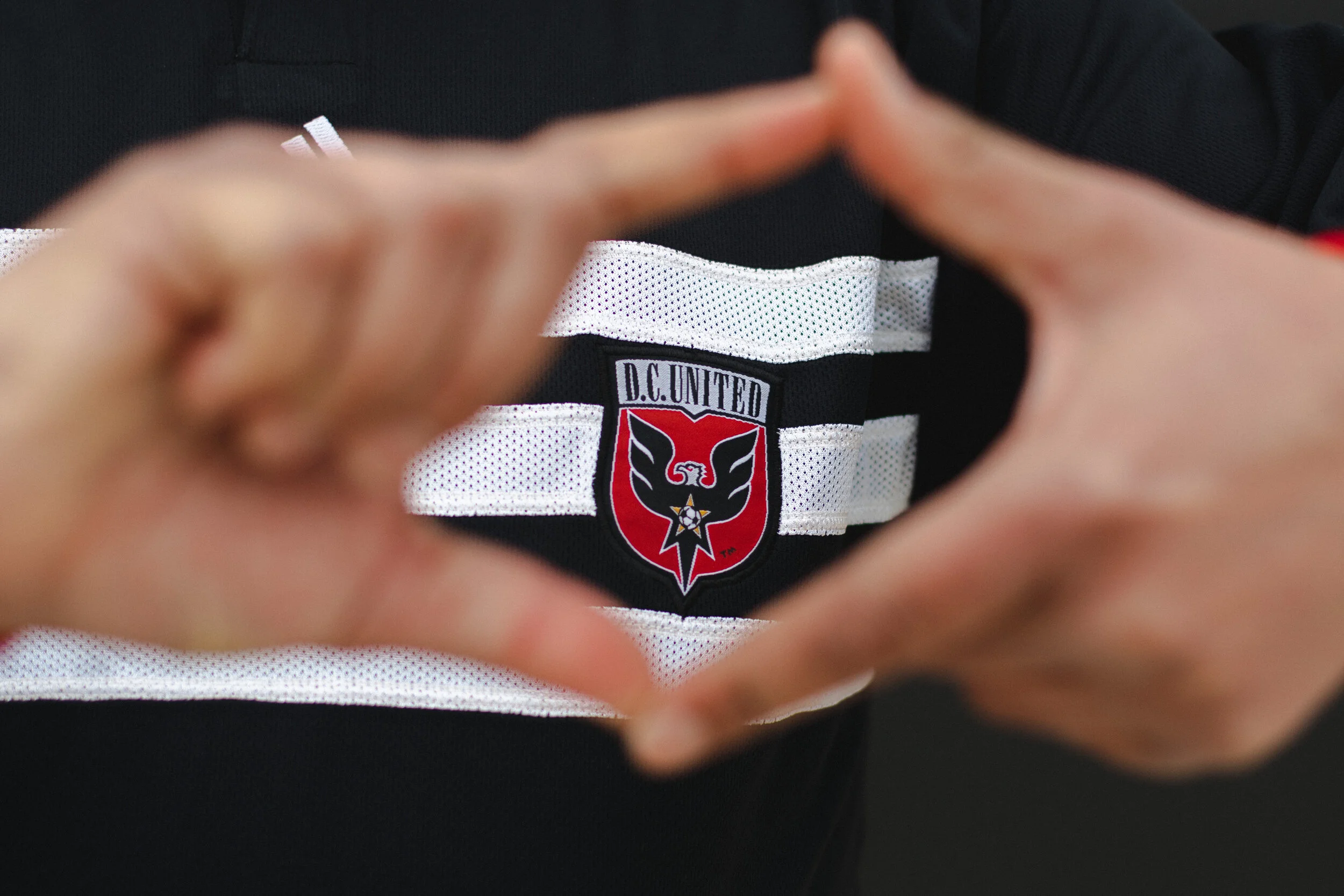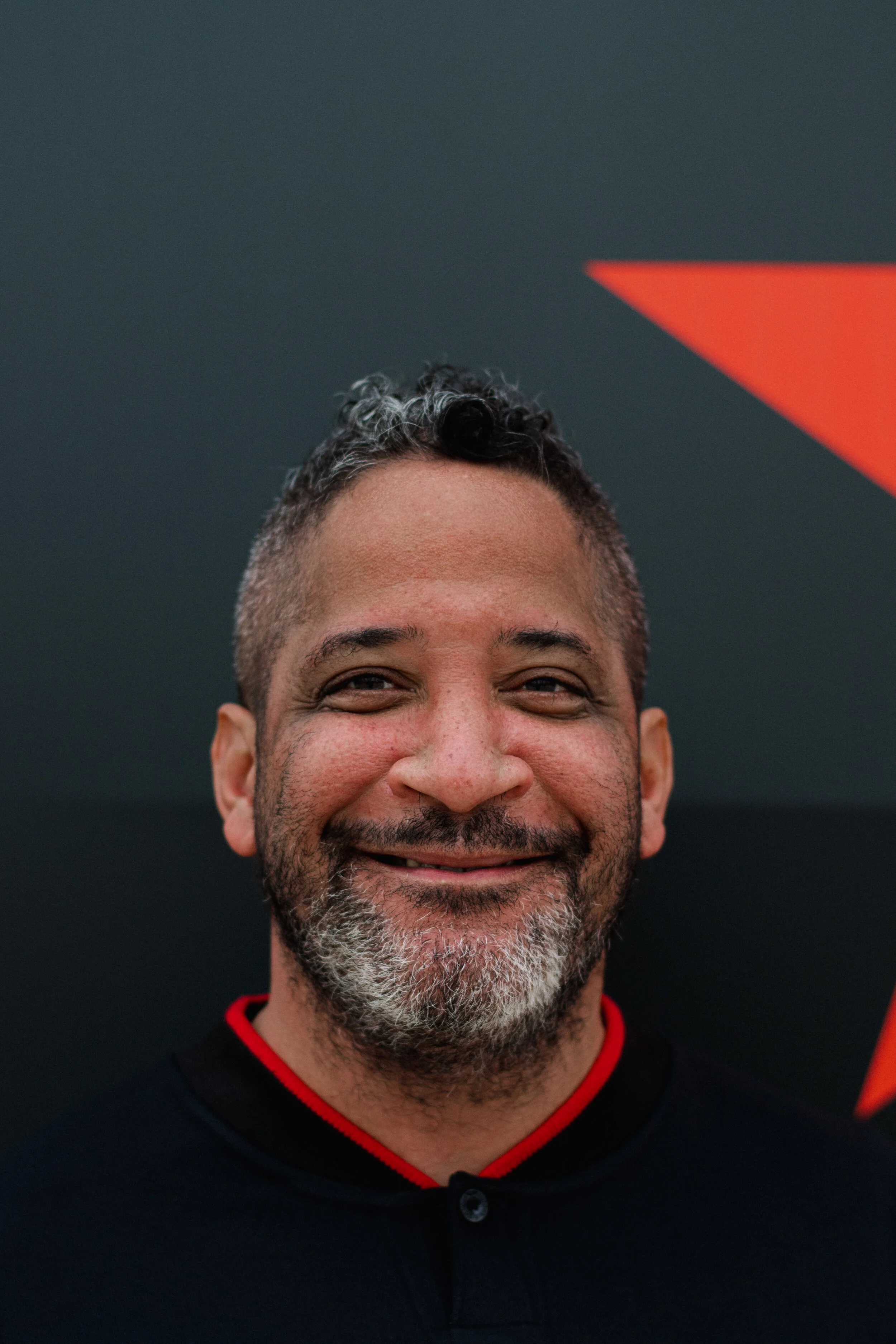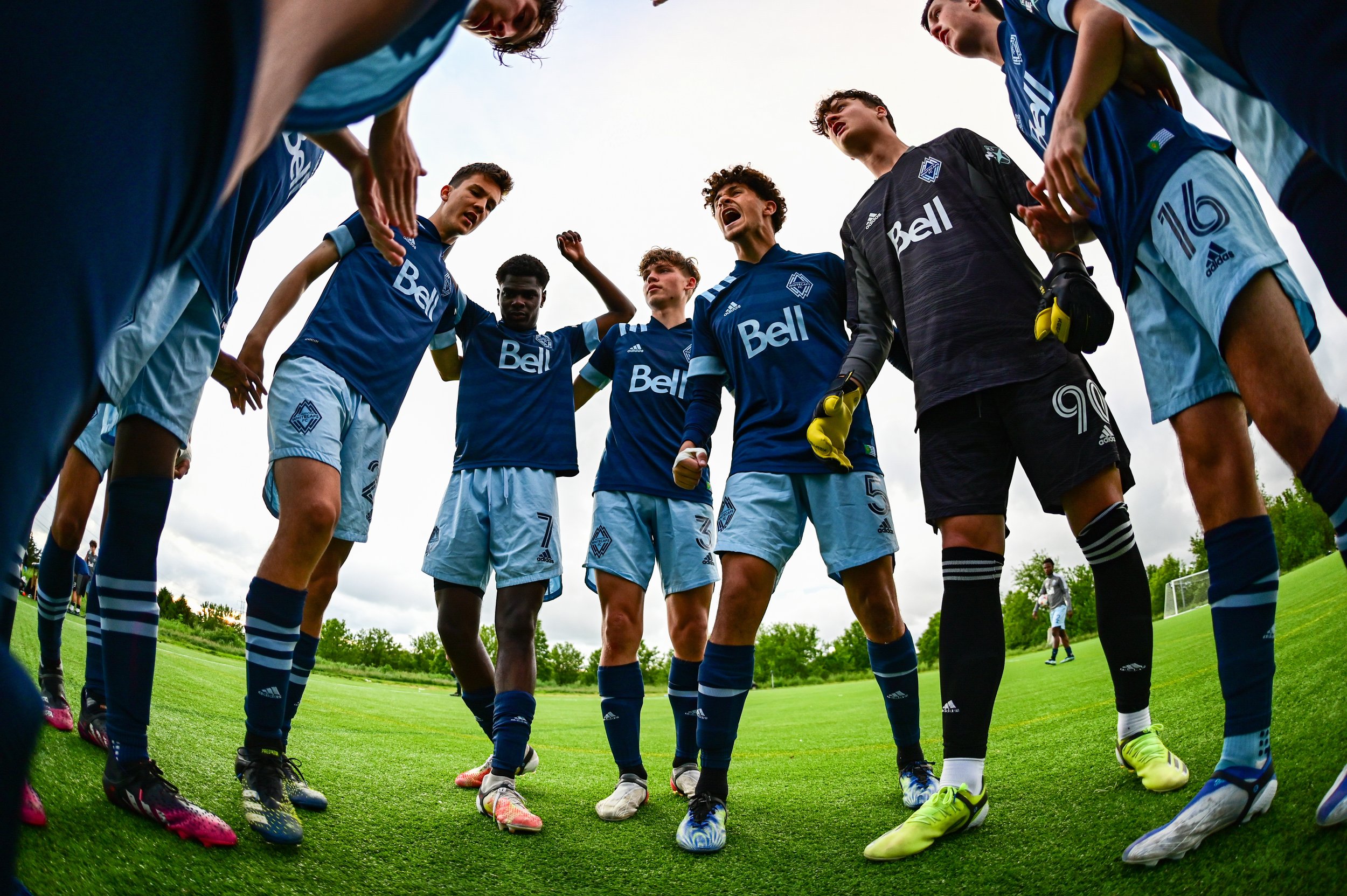Building the District

Successful clubs are never built in a day. When it comes to D.C. United, Judah Cooks has silently helped build his hometown club into a historic MLS franchise, brick by brick. Cooks is a rare example of a player who’s done it all for a team -- on the field and off.
From winning the 1999 MLS Cup as a player to laying the groundwork for Audi Field to helping develop current first-team legends like Bill Hamid, Cooks has played a crucial role for D.C. United throughout their 25-year history.
Cooks, a DMV native, began playing competitive soccer when there was no well-established soccer community in the United States. Looking back at the soccer landscape when he started playing in the mid-’80s, Cooks said, “Honestly, it's a totally different world because there was no MLS when I was a kid. The only thing that we could do was maybe get two channels on TV where you could maybe watch a Bayern Munich or A.C. Milan match. That was it.”
Despite that lack of access, Cooks fell in love with the game in the same way that many kids do around the world -- by scoring goals.
“My father told me I scored three or four goals during my first game in rec league in first grade,” Cooks said. “So, you know, when you're good at something, you start to kind of like it, right? So that's really how it started for me.”
Growing up, Cooks played rec and travel league for Capitol Hill Soccer and the Arlington Cobras. From there, he slowly climbed his way up to the Virginia State Team, then the regional team, and eventually the U-17 USMNT. While Cooks already had a vague idea that he wanted to go pro, his intention only solidified after getting to play in Japan at the 1993 FIFA U-17 World Cup.
“What a great country to visit,” Cooks said. “For us, as 16-year-olds, it was a culture shock. Bicycles left unlocked and all of that. We were mostly in the hotel or on the training pitch, but we did get to see a Buddhist temple, and that was awesome. It was beautiful. The whole trip was awesome.”
Japan was also where Cooks got his first taste of what being a pro soccer player could be like. Following their last group stage match in which Cooks scored three goals and became the first American player ever to score a hat-trick at a U-17 World Cup, interviews followed from both the Japanese and American press alike. It was his first moment of fame.
“I got man of the match, and they had all kinds of interviews all over the world,” Cooks said. “Japanese interviews, the United States press calling in the middle of the night to get the scoop. But it was a great time, and honestly, the goals really were all team-oriented, so hats off to our coach Roy Rees.”
Since then, only Freddy Adu and Tim Weah have scored hat tricks for the U.S. at the U-17 World Cup.
The United States would eventually fall to Poland in the quarterfinals, and following the end of the tournament, Cooks had a conversation with Rees that would nearly change the course of his career.
“We talked for like six hours about me going to Europe instead of going to college,” Cooks said. “My biggest thing was that I knew that my mom wanted me to go to college. That was very important in our family.”
At the time, going to college was the most common route for young American players. While today there’s a growing number of young players forgoing college to make the jump to MLS or Europe, back in the early ‘90s, that was not the case.
“Going to a top-five school was the goal for all of our national team players,” Cooks said. “Go to Virginia, go to Maryland, those kinds of opportunities. If I could do it again, I would say that I really would have tried to talk my mom into allowing me to go over to Europe.”
Cooks joined the University of Maryland in 1995, playing for two seasons with the Terrapins before leaving early in 1998 to join D.C. United under the innovative Project-40 initiative.
“Project-40 basically had the goal to encourage some of the top players in the country to come into the league early, while paying for their school,” Cooks said. “There were probably about ten or 12 players nationwide that left early, some high schoolers as well. DeMarcus Beasley was one, Landon Donovan was another, Ben Olsen too. Those guys really took it to the highest level of achievement.”
“With where I was ranked, and after talking with agents, I thought that it was the best decision for me to accept. I thought that getting into that pro atmosphere was better than staying another year and losing out on that time in that professional environment.”
Luckily for Cooks, he would enter one of the best pro soccer environments in the country at the time, which made the transition into the big leagues much easier.
“The atmosphere at D.C. United was great,” Cooks said. “They had just won two championships and had Marco Etcheverry, Jaime Moreno, Roy Lassiter, Eddie Pope -- all of these kinds of superstars. Guys that you could really look up to. And when I came into the league, it was more about learning from them. I also started with Bruce Arena, who I still believe was one of the better coaches I've ever had or been around.”
When talking about what it was like to be coached by Arena, who is now the most decorated coach in MLS, Cooks said, “Honestly, the difference between [Arena] and every other professional coach I had was the preparation. I mean, his film sessions were the longest I’ve ever been in. Instead of doing an hour or 30 minutes, we were doing two hours in the film room, watching the other team. You see how to break down the other teams, how we can play against them, and how to adjust. It really was all about winning. Every single practice, every little drill, was about being competitive. It was almost like shaming, right? If you didn't have a good practice and were on the second team, it was tough sledding. Everybody was competing every day, and that broke out into fights sometimes, but that was a normal occurrence. Truth be told, I think that that's what made that group so good.”
That competitive spirit was at its highest during the 1999 MLS season, the year after D.C. United lost to the Chicago Fire in the 1998 MLS Cup.
During that season, Arena departed to the USMNT, but United brought in Thomas Wrongen to replace him, and they ended up right back in MLS Cup for the fourth year in a row. It was Cooks’ first time in the squad for the grand final, and it’s a day he will never forget for more reasons than one.
“Christina Aguilera sang at halftime at our MLS Cup in New England,” Cooks said. “Anyways, we were playing very well -- I think we were up 1-0 at halftime -- and she kind of parked herself right on our bench. She was standing right next to me, and we were all like, ‘Wow.’ She was going to sing at halftime! So it was amazing to me that I really didn't know who she was, but we ended up spending a little time with her at the stadium afterparty, and it was a really great time.”
Back in D.C., the real celebrations began. For the third time in four years, United were MLS Cup Champions.
“We had a parade that next Monday or Tuesday, and it was freezing cold, but everybody was out,” Cooks said. “We went down Pennsylvania Avenue and around the city. The trophy was out, and everybody was cheering. It was just a once-in-a-lifetime experience for me.”
Although Cooks’ MLS Cup victory with United came at the tail-end of an incredible four-year run by the club, the impact that that third trophy had on the players and the soccer community in D.C. cannot be understated.
“There was a buzz in D.C. because of the winning that the club was doing. It was awesome,” Cooks said. “We were let into different events and all that. We went to Wizards games and sat courtside. We got all those little things, whereas I don't think that was happening around the rest of the league. I do think now it's coming around, and it still has a lot to do with winning. It’s like a team wins an MLS championship, and all of a sudden, you’re doing TV and doing all these different things. I was lucky enough to be with that D.C. United group for those years. I got a part of that real -- I don't want to say stardom -- but there was a popularity about our team, and I don't know if that’s ever been created again in MLS, but for sure, it wasn't around then. I was lucky enough to play when we were very popular and known, which also helps the players that came up after us, to some degree.”
Cooks left United in 2001 and had short stints with the Miami Fusion, Charleston Battery, Milwaukee Rampage, Atlanta Silverbacks, and Syracuse Salty Dogs. Following those years playing in the USL A-League, Cooks decided to return to Maryland to finish his degree.
Just two months into school, though, United came knocking once again. This time they had a different project for Cooks in mind.
“In 2006, United called me, and they're like, ‘Hey, we want to build this new stadium in Anacostia,’” Cooks said. “They wanted my help starting programs for inner-city kids to help us gain access to the community so that we could get the stadium going.’”
After realizing how much time it would take to work for United’s front office, Cooks decided to take a break from school and focus solely on the club’s projects.
“In the mornings, we would get up and go to work and set up visits all over Southeast Anacostia,” Cooks said. “My specific job was to set up programming for the inner city department parks and rec and boys and girls clubs. We would go to a site and start a soccer program every day.”
The programs were free for every child and were sponsored by United as well. There were three practices a week, and then the kids would go and play in the local Anacostia leagues and other leagues around the city.
“We had a lot of success, and it was really a lot of fun introducing a game that none of these kids had ever played before,” Cooks said.
Those programs set up by Cooks have lasted to this day, and his work paved the way for United to open up Audi Field right along the Anacostia River waterfront in 2018. The grassroots effort to foster a deep connection between the club and the local community ultimately made Audi Field possible.
“Looking back at the impact that those programs have had,” Cooks said, “Hundreds of hundreds of kids, and probably over thousands of parents and families were introduced to our club the right way. It was all people that cared about them and wanted to work with their kids and make them better players and better people. They made us better people too.”
In addition to all of his community work through United, Cooks also helped launch the D.C. United Academy, and he eventually coached the U-18 team for six years until 2017.
“We had no problems getting the talent,” Cooks said. “In my tenure coaching at the academy, we probably had six to seven players go from the U-18 team to the first team, which was a good number nationwide. The first to go up was Bill Hamid, and the second was Andy Najar. We also had Ethan White, Conor Shanosky, Michael Seaton, and Collin Martin.”
All of those players have gone on to have successful careers at the professional level, and their success is a testament to Cooks’ dedication to building a robust soccer community in Washington D.C. from the ground up.
When recalling his favorite memory from all those years at D.C. United, Cooks simply said, “For me, it was kind of the whole thing together, the way that it was a family atmosphere. There was always the opportunity to speak up. If you thought something could be done better, whether you were Judah Cooks or Marco Etcheverry, there was an open forum at the club, and I really liked that.”
Most importantly, though, Cooks has never forgotten the winning mentality of doing things the right way.
While Cooks might not be the superstar that Marco Etcheverry or Jaime Moreno was for the club, the impact that he has had on D.C. United and the soccer community in Washington D.C. is undeniable. During his 12 years with the club, Cooks won an MLS Cup, paved the way to build Audi Field, and helped implement a lasting framework for thousands of kids to pursue soccer in the District. When it comes to following the club’s tradition of winning, Cooks did it both on and off the field.
“We had the word ‘tradition’ on the back of our jerseys,” Cooks said. “That was very important to everybody on the team and in the front office. I mean, that was the first thing that we -- whether you were in the front office or on the team -- talked about. We have a tradition of winning, and we want to do it the right way.”

